
Ageing in sustainable and smart cities
UNECE Policy Brief on Ageing No. 24
May 2020
There is now only a decade left to implement the 2030 Agenda for Sustainable Development and to achieve its 17 Sustainable Development Goals (SDGs). A decade of accelerated action is needed to do so and cities are key actors in this process. In an increasingly digitalized world, Information and Communication Technologies (ICTs) can help cities become more efficient in their operations and services and thus more sustainable, with opportunities for a greater quality of life and well-being of city dwellers of all generations, levels of ability and backgrounds.
Focusing on three realms of urban life - housing, green and public spaces, and transport - this brief draws attention to the importance of ensuring that the needs of older persons are taken into account when planning, designing and implementing sustainable development plans at the local level. It addresses the question of how policy-makers, business and civil society actors, citizens, young and old, can design age-friendly sustainable urban environments with the help of new technologies that meet the needs of all generations, overcome the digital divide, foster inter-generational solidarity and ensure that older people are not left behind in sustainable and smart cities for all ages.
| English | French | German | Russian |
|---|
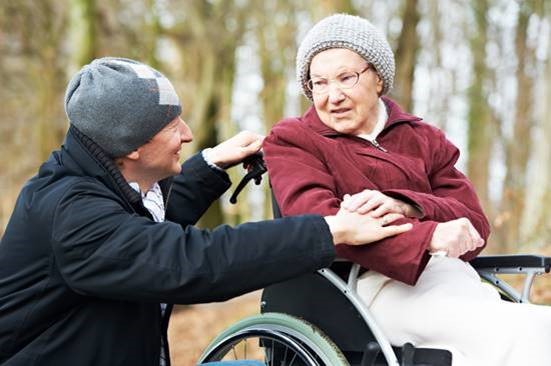
Gender equality in ageing societies
UNECE Policy Brief on Ageing No. 23
March 2020
Faced with population ageing, countries in the UNECE region are preparing for growing numbers of older persons receiving pensions and needing health and long-term care services. An important societal adaptation to ageing has been to increase the labour market participation among women and older persons to ensure the sustainability of social security and protection systems. It is now time that regulatory frameworks, financial provisions and services support the equal sharing of paid and unpaid work in families, households and communities between women and men to close prevailing gender gaps in care, employment, earnings and pensions. Unless gender- and age- responsive reforms are addressing the multiple dimensions of gender inequality in ageing societies, women risk to be disproportionately disadvantaged by the consequences of population ageing, facing double and triple shifts of paid, domestic and care work at the detriment of their own health, earnings and savings which can accumulate to a greater risk of poverty, social isolation and unmet care needs in their own advanced age.
| English | French | German | Russian |
|---|
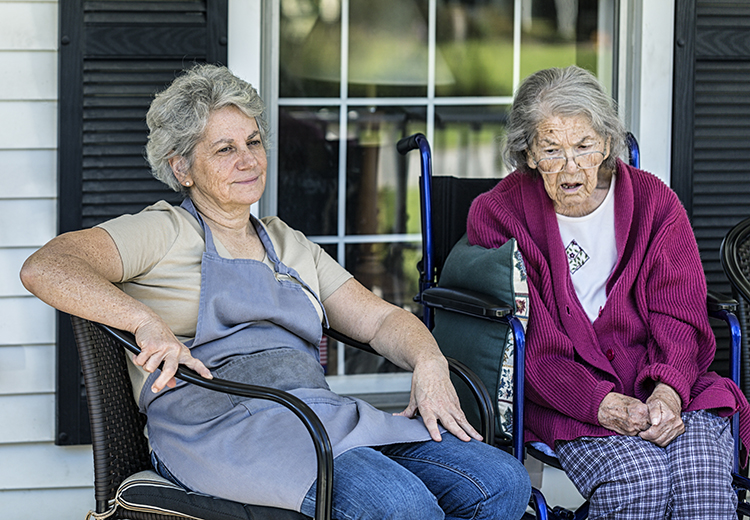
The challenging roles of informal carers
UNECE Policy Brief on Ageing No. 22
September 2019
There are different approaches to responding to the growing long-term care needs of ageing populations across the UNECE region. Societies rely to a varying extent on the unpaid labour of informal carers who cover an estimated 70 tp 95 percent of all care needs. While informal unpaid care saves public spending on formal care services, the reliance on informal care has many hidden costs. It not adequately supported in their role, informal carers can face negative impacts on their health and well-being, and be forced to reduce or quit employment - putting themselves at risk of poverty and social exclusion. The challenges associated with informal care not only affect carers themselves but society at large: intensive informal caregiving can result in higher demand and costs for health care as a consequence of its negative impact on the physical and mental health of carers, reduced labour market participation and consequently higher risks of poverty and social exclusion.
| English | German | Russian |
|---|

Combating ageism in the world of work
UNECE Policy Brief on Ageing No. 21
February 2019
Ageism is the stereotyping, prejudice and discrimination against people based on their age. Many older workers face ageism when looking for new jobs, training opportunities and career development or are pushed to leave into early retirement in times of economic recession. Ageism in the labour market is costly to businesses who do not make the most of their ageing workforce. At the individual level, ageism has been shown to negatively affect health and well-being. The complexity and intersectionality of the phenomenon needs to be addressed now. Deeply rooted stereotypes, prejudices and discriminatory practices take time to change. Combating ageism in the world of work requires removing ageist provisions in the legal and regulatory framework, addressing prejudice and negative stereotypes about older workers and encouraging age-inclusive and age-diverse workplaces that offer equal opportunities for all generations.
| English | German | Portuguese |
|---|
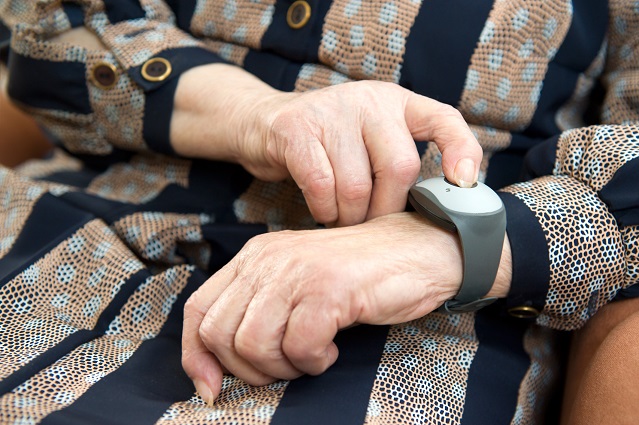
Innovative social services and supportive measures for independent living in advanced age
UNECE Policy Brief on Ageing No. 20
November 2018
The rapid increase in the oldest-old population aged 80 and over brings with it critical challenges for individuals, families, communities and policymakers. Finding innovative and sustainable solutions to help individuals of advanced old age to continue living at home independently is critical in the context of both demographic change and budgetary constraints. Reaching advanced old age takes a different form for different individuals, as their intrinsic capacity interacts with their living environment to affect their functional ability. Supporting such diversity in the experience of advanced old age requires smart, integrated and customized innovations, and result in resource efficiencies for the system of service provision.
| English | German | Portuguese |
|---|

Realizing the potential of living longer
UNECE Policy Brief on Ageing No. 19
September 2017
Policy responses to population ageing to date have primarily focused on adapting welfare systems to the challenges of demographic change. Much less attention is being paid to the opportunities and potentials that living longer holds for individuals, economies and society at large, and to tackling the barriers that currently hinder their full realization. Perceiving longevity mainly as a fiscal pressure and an obstacle to economic growth may trigger reforms that result in rising inequalities. This can occur when the cumulative disadvantages stemming from difficulties in transitions over the life course, ill health and disability and unpaid caregiving are insufficiently addressed. It also feeds into age-based stereotypes and negative attitudes towards older people. To change this, it is essential to better recognize the potentials of ageing societies and to enable people to live active and fulfilling lives as they age.
| English | German | Portuguese |
|---|

Older persons in rural and remote areas
UNECE Policy Brief on Ageing No. 18
March 2017
Rural and remote areas in many countries experience more pronounced population ageing than urban areas and subsequently, have a higher share of older residents. Lower population density and more geographically dispersed populations make it more difficult and expensive to create and maintain a comprehensive service infrastructure as common in urban areas. Consequently, rural populations have less access to services and activities and their situation may aggravate further when combined with poorer socio-economic conditions. This puts rural populations at a disadvantage compared to urban ones and can be particularly problematic for older people who may face a greater risk of social isolation, reduced mobility, lack of support and health care deficits as a result of the place in which they live.
| English | German | Portuguese | Spanish |
|---|

Migration and older age
UNECE Policy Brief on Ageing No. 17
July 2016
The UNECE region is experiencing a steady increase in the number and diversity of retired labour migrants and migrant eldercare workers. The international mobility of older persons is also on the rise. Yet the participation of migrants in the host communities and their access to welfare remains a challenging issue. Compared to native-born peers, older migrants are often more vulnerable to poor socio-economic and health status, social isolation and exclusion. Lower income, poorer working and housing conditions, including their concentration in low-income neighbourhoods, are among the factors affecting the life trajectories of many migrants. Migrant elder carers – independent of their age – often work informally without proper employment contracts and with limited access to health and social protection. There is, however, heterogeneity and variation in older migrants’ vulnerabilities and needs across and within ethnic groups, with consequent important welfare implications, which call for targeted policy responses at local, national, and international levels. A sound evidence base for such policy responses is lacking as older migrants are often overlooked in research, mainly due to a lack of data.
| English | German | Portuguese |
|---|

Dignity and non-discrimination for persons with dementia
UNECE Policy Brief on Ageing No. 16
August 2015
Dementia is becoming increasingly prevalent across the UNECE region. The disease entails a progressive loss of cognitive capacity and eventual disability, which can result in deterioration of quality of life. Dementia has high social and financial costs, affecting people with dementia and their caregivers. People living with dementia are often discriminated against: their dignity is challenged today by many factors including the retrenchment of welfare resources, and the changing structure of families. The issue of dignity and non-discrimination of people with dementia has often been overlooked, however, due to their limited representation in public debates and the stronger focus of research and policy on issues such as welfare sustainability and the well-being of caregivers.
| English | German | Portuguese | Spanish |
|---|

Innovative and empowering strategies for care
UNECE Policy Brief on Ageing No. 15
February 2015
Diverse demands and needs regarding care along with demographic change call for new care arrangements to better respond to individual needs. Too often older people are left out of decision-making processes and forced into a passive role when it comes to care. The central aim of this Policy Brief is to present innovative and empowering strategies for care that give the user more influence and power.
The inclusion of new and empowering strategies into the care setting broadens the scope of care, increases care coverage and improves quality, efficiency and target group orientation. The aim is to help older persons remain active as they age and to enhance their quality of life and overall well-being with care services tailored to their needs.
| English | German | Portuguese |
|---|

Abuse of Older Persons
UNECE Policy Brief on Ageing No. 14
October 2013
Population ageing in UNECE member States has given rise to fears that abuse of older persons may increase in its incidence, prevalence and complexity. Stereotypes may provide the breeding ground for abuse in society. Given the taboo attached to the topic, abuse and neglect are often underreported. Older people may be silent for fear of exposing a family member, losing services or being institutionalized. Therefore, there is a lack of reliable internationally comparable data to evaluate the phenomenon.
| English | French | German | Portuguese | Russian | Spanish |
|---|

Active ageing
UNECE Policy Brief on Ageing No. 13
June 2012
The way how persons age is determined by a variety of factors: biological pre-conditions, social circumstances, attitudes towards ageing, and life-style. The manner how an individual person ages may contribute to how long a person will live and how fit a person might be in the late period of life.
Current policies on ageing may perceive 'old age' as a status rather than the result of a process. Some ageing policies may be aimed at providing services within this status rather than at empowering older persons to live independently. Here, a change of paradigm is needed. In order to gain the ability to remain active, the individual needs to invest in this process throughout the life course. Appropriate societal structures, incentives and awareness-raising would enable persons to live an active life-style as long as possible. Current societal and legal infrastructures may not fully provide those opportunities for active ageing.
| English | French | German | Portuguese | Russian |
|---|

Images of older persons
UNECE Policy Brief on Ageing No. 12
January 2012
The economic and societal implications that result from demographic change may have an impact on how certain generations or age-groups are perceived by the majority of the population or community. Often older family members or neighbours are respected and well integrated members of their community. They also often dispose of a considerable knowledge, experience and consumer power through life-long accumulated savings. Older persons are thus able to assist younger family members and their community with advice through gained experience. But in some cases older persons are faced with neglect and negative stereotypes. A displacement of older persons into segregated communities, an undervaluing of their contributions to society, and negative media portrayals, contribute to a decrease in face-to-face contact with older persons, foster the growth of a gap between generations and a general lack of empathy towards people of different age-groups.
| English | French | German | Portuguese | Spanish |
|---|

Cooperation on Ageing Policies in the UNECE region
UNECE Policy Brief on Ageing No. 11
November 2011
Although ageing policies are often dealt with in the context of the national public policy agenda, there is also a need for regional, sub-regional and international cooperation on this topic, as many issues do not end at national borders. Regional cooperation may be helpful as states of the same region often share similar cultural, economic, or political contexts.
| English | German | Portuguese | Spanish |
|---|
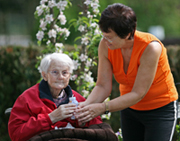
Tapping the potential of volunteering
UNECE Policy Brief on Ageing No. 10
January 2011
The concept of volunteering has many aspects. Across the UNECE region there is no unified definition of volunteering in terms of pay, duration of activity, or content of work. In this context a clear distinction between regular employment and volunteering must be drawn, which must go beyond the mere presence or absence of remuneration. Benefits for volunteers need to be clearly outlined, e.g. training opportunities, social participation and inclusion, as well as other aspects. Older persons benefit from volunteering both as providers and as recipients. Promoting these activities is therefore in the interest of every government. Such promotion can be achieved by offering support to organizations and volunteers through the strategies outlined in this policy brief.
| English | German | Portuguese | Spanish |
|---|

Age-friendly employment: policies and practices
UNECE Policy Brief on Ageing No. 9
January 2011
In many UNECE countries the average actual retirement age is below the statutory retirement age, which means that the labour market is losing a great deal of resources in terms of experience and labour capacity of older workers. Ageing societies, however, cannot afford to lose the highly valuable resource of older workers. If there are people aged 55 years or older who want to work, but cannot due to unfavourable conditions in the labour market, UNECE member States may wish to address this issue.
| English | German | Portuguese | Spanish |
|---|

Advancing intergenerational solidarity
UNECE Policy Brief on Ageing No. 8
August 2010
Demographic transition in Europe has led to changing household structure with a potential impact on the dynamic between generations. As a consequence of living longer and later childbearing, most adults in Europe belong to a family network of three generations with which they share several decades together in a complex web of ties. The solidarity among generations is a key feature of the economic, financial and social systems in Europe. However, the rapidly changing demographic context, particularly in combination with the demands of the recent economic crisis, could create tensions among generations and represent a challenge to the existing solidarity and cooperation among people of different age groups.
| English | German | Portuguese | Spanish |
|---|
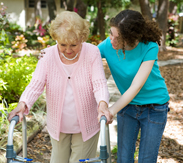
Towards community long-term care
UNECE Policy Brief on Ageing No. 7
July 2010
The population of countries in the UNECE region is ageing, which is leading to the increase in the number of the oldest old — a group with a higher probability of becoming in need of long-term care. At the same time, the number of those making up the working age population, who will be able to provide care, will decrease. UNECE member States have committed themselves to coping with this growing demand in care services while securing quality and choice for patients and their families. Financial sustainability of long-term care systems and a qualified work force are key elements in securing a high quality of long-term care and protecting human dignity in an ageing society.
| English | German | Portuguese | Serbian | Spanish |
|---|

Health promotion and disease prevention
UNECE Policy Brief on Ageing No. 6
April 2010
While people are living longer, it is important to improve the quality of every stage of life. Therefore, UNECE member States have committed to implement health policies ensuring that increased longevity is accompanied by the highest attainable standard of health1. In the coming years and decades, the number of elderly people in the region of the United Nations Economic Commission for Europe (UNECE) will rise sharply, challenging societies’ ability to care for those in need.
| English | German | Portuguese | Russian | Serbian | Spanish |
|---|

Lifelong learning
UNECE Policy Brief on Ageing No. 5
March 2010
Populations in the UNECE region are ageing rapidly. To maintain economic growth and standard of living, people would need to work longer before they can retire. Regarding people who are currently in their working age, demographic change may require to include those into the labour market who were previously not fully integrated, such as early school leavers, women and migrants. In a knowledge society, this all requires a good standard of basic education as well as vocational training, tertiary education, information and communication technology (ICT) and language skills.
| English | German | Portuguese | Serbian | Spanish |
|---|

Integration and participation of older persons in society
UNECE Policy Brief on Ageing No. 4
November 2009
Realizing a society for all ages is the declared goal of Governments in member States of the United Nations Economic Commission for Europe. To this end, achieving the integration and participation of older persons in society are important elements. This policy brief outlines the main strategies that may be considered to increase participation of older persons in political and economic life and to improve their access to transport, appropriate housing and cultural activities. It highlights the importance of balanced intergenerational relationships based on mutual respect. Efforts may be made to reduce ageism and to destigmatize old age. The potential of volunteering may also be used – both in support of older generations and by the older generations themselves.
| English | German | Portuguese | Russian | Serbian | Spanish |
|---|

Older persons as consumers
UNECE Policy Brief on Ageing No. 3
November 2009
In an ageing society, one aim is to further enhance the social, economic, political and cultural participation of older persons. […] Older persons should therefore be recognized as a significant consumer group with shared and specific needs, interests, and preferences. Governments, service providers and civil society should take into account the views of older persons on the design of products and delivery of services.

Gender equality, work and old age
UNECE Policy Brief on Ageing No. 2
November 2009
To respond to demographic and societal changes, the effects of policies on men and women and on all generations have to be considered. Gender mainstreaming is the process of assessing the implications for women and men of any planned action, for instance legislation, policies and programmes, prior to implementation. This allows the development of strategies in which concerns and experiences specific to women and men are an integral dimension of the design, implementation, monitoring and evaluation of policies and programmes.
| English | German | Portuguese | Russian | Serbian | Spanish |
|---|
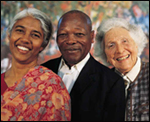
Mainstreaming Ageing
UNECE Policy Brief on Ageing No. 1
November 2009
Population ageing has important and far-reaching implications across all spheres of society. Ageing-related issues therefore need to be integrated into all policy fields in order to bring societies and economies in harmony with demographic change. This policy brief looks at how Governments can do this and provides selected examples. It also addresses the ways in which all age groups can be equally involved in designing, implementing and evaluating ageing-related policies and programmes.



